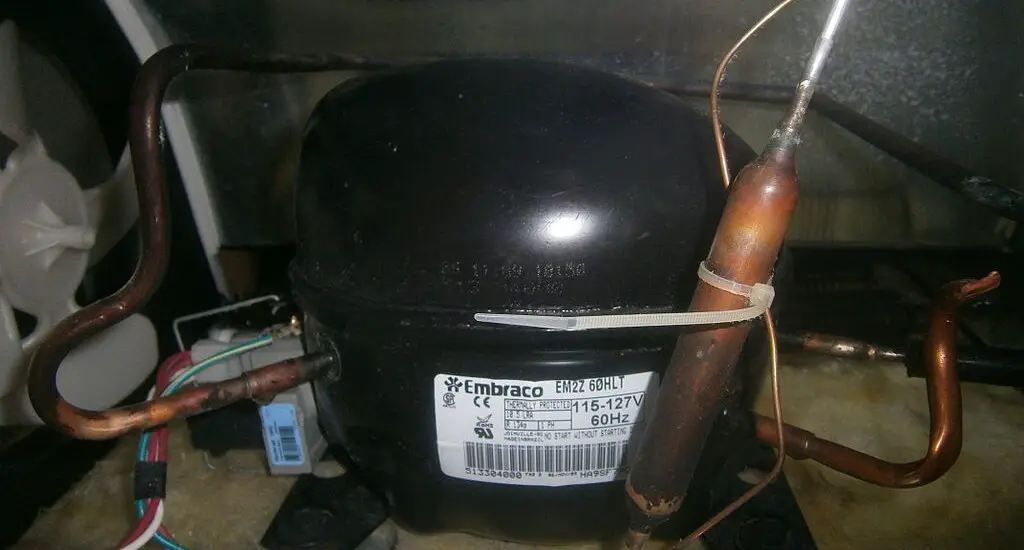Refrigerator compressor disposal can be a complicated task. But worry not—this article offers a comprehensive, step-by-step breakdown, so you can carry out the disposal safely and within legal guidelines.

Table of Contents
Why Proper Refrigerator Compressor Disposal Matters
The importance of proper refrigerator compressor disposal stems from the fact that a compressor is not just a hunk of metal. It contains substances such as lubricating oils and potentially harmful refrigerants like Freon or R-600a.
Incorrect disposal could lead to these substances seeping into the ground, causing soil and water pollution. They may also release gases that are harmful to the ozone layer. Not only is this environmentally detrimental, but it’s also often illegal and can result in fines.
Understanding Local Regulations
Before you even touch your old compressor, it’s vital to look up your local laws concerning appliance disposal. Different regions have varying regulations that dictate the proper methods for refrigerator compressor disposal. Non-compliance can result in fines or legal repercussions.
Check the websites of local waste management agencies or call them to get precise guidelines. This step ensures you are aligned with local and federal laws and also points you toward the approved methods of refrigerator compressor disposal.
Preparation Steps Before Refrigerator Compressor Disposal
Once you know the laws, the next steps involve preparing the compressor for safe and legal disposal. Let’s delve into the essential steps:
Unplug the refrigerator: The first thing to do is unplug the fridge. This step is crucial for ensuring there’s no electrical current that might cause an accident.
Locate the compressor: The compressor is typically located at the back of your fridge, often under a metal or plastic cover. Remove the cover to gain access.
Gather your tools: For most refrigerators, you’ll need a set of screwdrivers, wrenches, and possibly wire cutters. Ensure all these tools are at hand to avoid delays.
Check out this Jaeger 26pc IN/MM TIGHTSPOT 90-Tooth Ratcheting Wrench Set on Amazon.
Disconnect and remove: Carefully disconnect the wires and tubes connected to the compressor. Use your wrench to loosen the bolts and your screwdriver to remove screws if needed. Lift out the compressor, but be careful—it’s heavy and might contain residual gases.
Storage: Place the compressor in a location that is dry and ventilated. Never store it near open flames or heat sources due to the residual oils and gases it contains.
Check out these other articles…
Refrigerator Compressor Always On: 4 Causes & Sure Fixes
Refrigerator Compressor Auto Cut Off: Your Ultimate Guide
Refrigerator Compressor Burnout: Identification & Solutions
Refrigerator Compressor Buzzing Not Cooling: DIY Fix Guides
Refrigerator Compressor Banging Noise: 3 Quick Fixes
Refrigerator Compressor Disposal Options
After successfully preparing the compressor, you now have multiple avenues for disposal:
Recycling Centers: Certain facilities are designed to handle hazardous waste like compressors. They will safely dismantle and recycle the metal and remove harmful substances. Make sure to call ahead to confirm they accept compressors.
Curbside Pickup: Some towns offer special pickup services for large appliances. You may need to schedule this in advance and might incur a fee.
Specialized Disposal Services: Companies exist solely for appliance disposal. They often charge a fee but handle all the heavy lifting and ensure legal disposal.
Manufacturer Take-Back: Many manufacturers offer a service where they will pick up your old appliance for proper recycling when delivering a new one. Check if your brand offers this service.